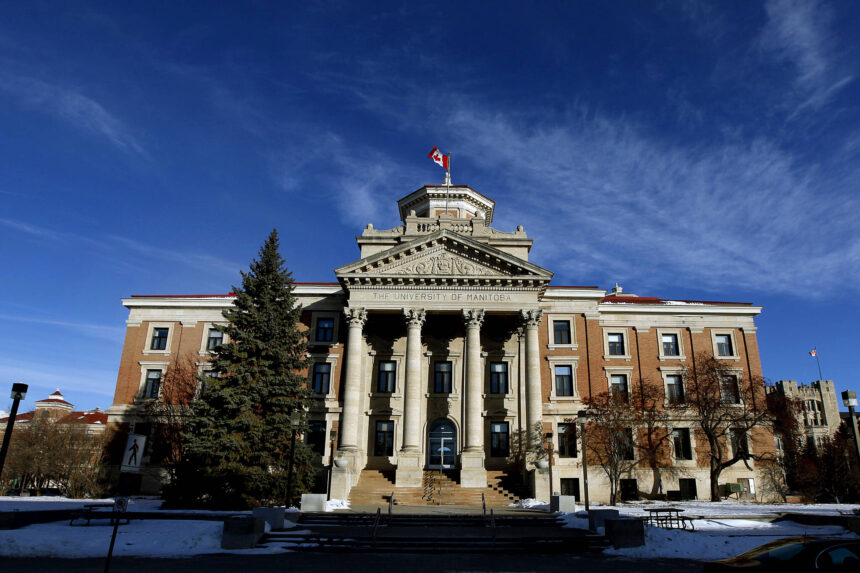While national leaders craft economic recovery plans, Manitoba’s education system faces its own crisis of credibility. For the past three years, university professors have watched an alarming trend unfold: high school graduates arriving on campus with transcripts bearing A’s and B’s, yet struggling with basic academic skills.
“The disconnect between high school grades and university readiness has never been wider,” explains Dr. Sarah Chen, who teaches first-year economics at the University of Manitoba. “Students who’ve never received anything below an 80% are shocked when they fail their first university assignment.”
The Manitoba Association of University Professors released findings yesterday showing grade inflation has accelerated since pandemic-era assessment changes. Their report indicates the average high school GPA has climbed 12% since 2019, while standardized assessment scores remain flat or declining.
Walking through the halls of Winnipeg’s Gordon Bell High School, Principal James Forester acknowledges the pressure teachers face. “We’re caught between competing interests,” he tells me during a morning coffee break. “Parents demand high marks for university applications, administrators want successful graduation statistics, and somewhere in between, we’re supposed to maintain academic standards.”
The numbers paint a troubling picture. According to Manitoba Education data, 72% of provincial high school students now graduate with B+ averages or higher, compared to just 58% a decade ago. Yet the University of Manitoba reports 38% of first-year students require remedial writing or math support – an increase of 17% since 2018.
The inflation phenomenon isn’t unique to Manitoba. Education ministries across Canada have documented similar trends, though Manitoba’s rate exceeds the national average by nearly 5 percentage points.
“We’re setting students up for failure,” argues Dr. Michael Thompson, education policy researcher at Brandon University. “When high schools prioritize self-esteem over honest assessment, they create false confidence that crumbles during the first university midterms.”
The inflation cycle seems self-perpetuating. As neighbouring schools report higher averages, educators feel pressure to adjust their own grading scales to ensure their students remain competitive for limited university spots and scholarships.
Emma Reyes, a second-year nursing student at Red River College, describes the shock of her first post-secondary term. “I graduated with a 92% average and thought I was prepared. Then I bombed my first anatomy exam. It was humiliating to realize my high school A’s didn’t actually mean I mastered the material.”
Parent groups offer a different perspective. The Manitoba Parent Coalition suggests universities need to modernize their teaching methods rather than blame high schools. “Today’s students learn differently,” argues coalition president Patricia Nguyen. “Universities need to adapt rather than expecting schools to return to outdated grading practices.”
Education Minister Carlos Martinez has promised to convene a provincial task force to examine assessment practices, though critics note similar committees have formed and dissolved three times in the past decade without meaningful reform.
At Kelvin High School in Winnipeg’s Crescentwood neighbourhood, math teacher David Sharma has taken matters into his own hands. He’s implemented a dual grading system – one reflecting provincial standards and another showing how students might perform under university expectations.
“It’s created some uncomfortable parent-teacher meetings,” Sharma admits with a slight smile. “But I’d rather have those conversations now than have students call me in tears after their first university calculus exam.”
The implications extend beyond academic concerns. Employers report growing frustration with recent graduates who expect praise for meeting basic job requirements. Manitoba Chambers of Commerce surveys indicate 64% of businesses find recent graduates have “inflated expectations about their job performance and advancement timelines.”
Back at the University of Manitoba, professors debate solutions. Some advocate entrance exams like those used in Quebec’s CEGEP system, while others suggest transitional “university preparation” courses during grade 12.
“Whatever path we choose, the status quo isn’t sustainable,” says Chen. “Giving students artificially high grades isn’t kindness – it’s setting them up for a painful reality check.”
As Manitoba’s education stakeholders prepare for the upcoming task force, the fundamental question remains: will the province prioritize comfortable statistics or uncomfortable truths? For students like Emma Reyes, the answer will shape more than report cards – it will determine whether their education prepares them for real-world challenges or simply postpones inevitable disappointment.






